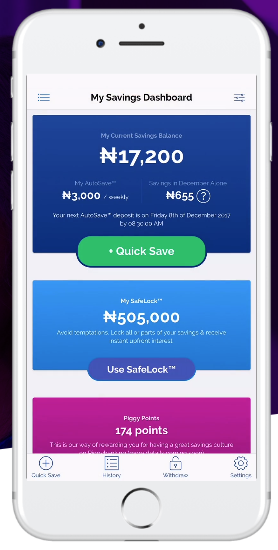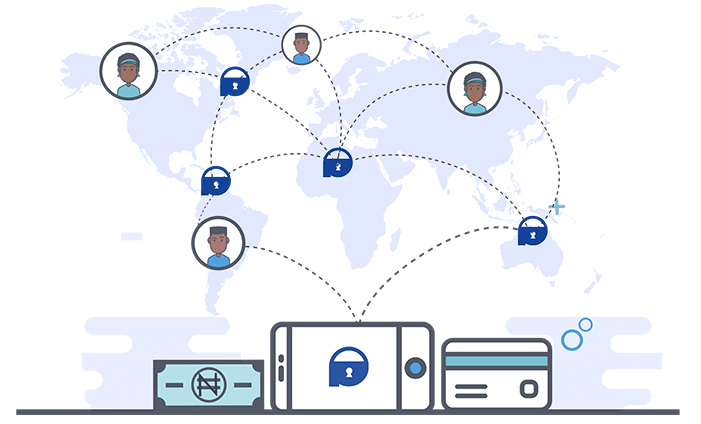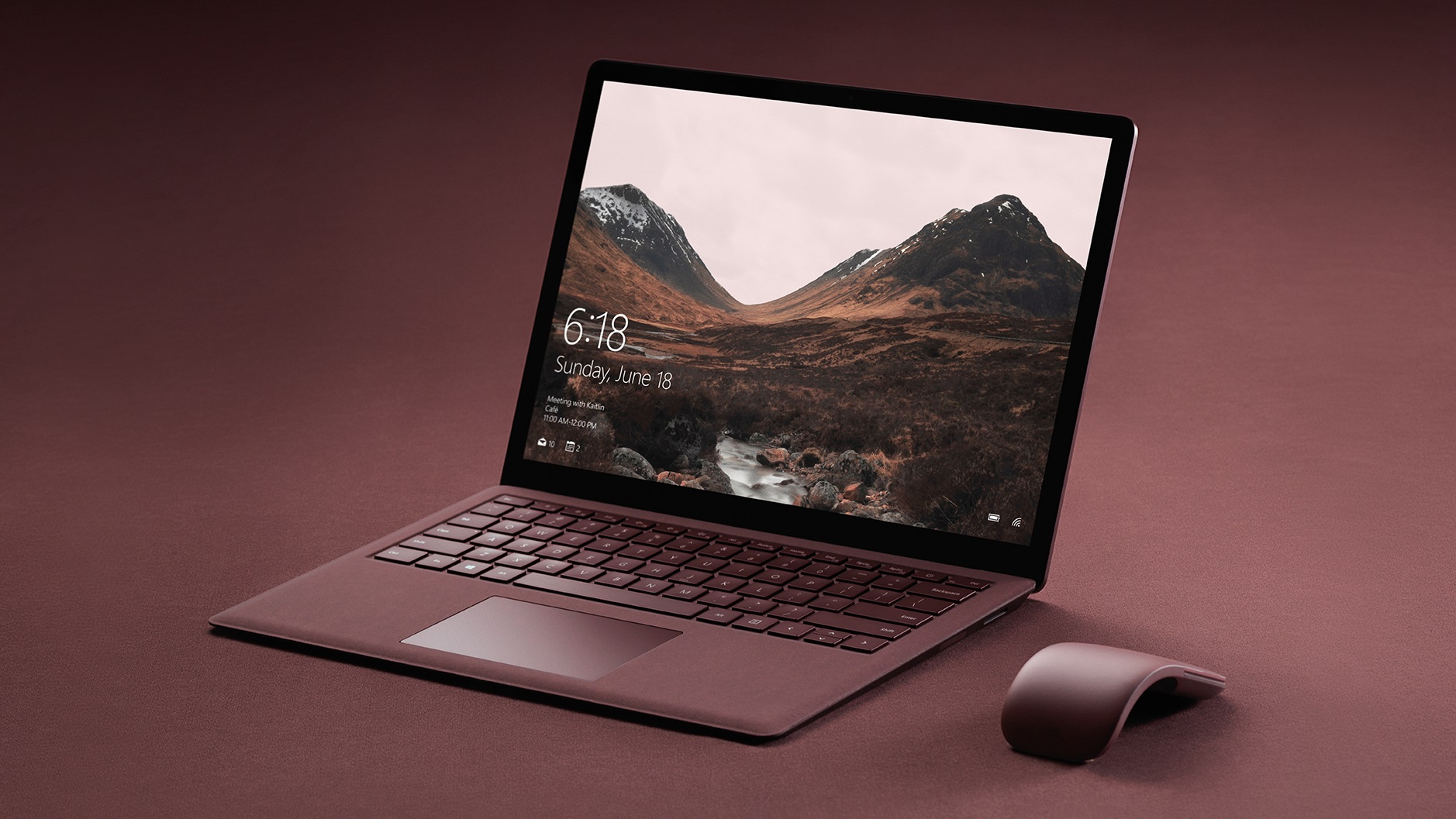Music
Trailers
DailyVideos
India
Pakistan
Afghanistan
Bangladesh
Srilanka
Nepal
Thailand
Iraq
Iran
Russia
Brazil
StockMarket
Business
CryptoCurrency
Technology
Startup
Trending Videos
Coupons
Football
Search
Download App in Playstore
Download App
Best Collections
Technology

- Details
- Category: Technology

- Details
- Category: Technology
Read more: How to find out if someone screenshots your Instagram photos and videos
Write comment (97 Comments)Seeking to tap into Africainformal savings groups the Nigerian investment startupPiggybank.ngclosed $1.1M in seed funding and announced a new product — Smart Target, which offers a more secure and higher return option forEsusuorAjogroup savings clubs common across West Africa.
The financing was led with a $1 million commitment fromLeadPath Nigeria, withVillage CapitalandVentures Platformcontributing $50,000 each.
Founded in 2016, Piggybank.ng offers online savings plans — primarily to low and middle income Nigerians — for deposits of small amounts on a daily, weekly, monthly, or annual basis. There are no upfront fees.
Savers earn interest rates of between 6 to 10 percent, depending on the type and duration of investment, Piggybank.ngSomto Ifezue told TechCrunch in Lagos with co-foundersOdunayo EweniyiandJoshua Chibueze.

Users need an account with one of PiggyBank.ngbank partners to use the products. The startup generates returns for small-scale savers (primarily) through investment in Nigerian government securities, such as bonds and treasury bills.
PiggyBank.ng generates revenue through asset management and fromthe floatits balances generate at partner banks.
The startup looks to grow clients across younger Nigerians and the countryinformal saving groups.
&The market that we are trying to serve is largely the millennial market, though we do not exclude anyone,& said Eweniyi, the companychief operating officer. The venture also looks to meet a demand in Nigeria for accessible investment options, citing a survey they conducted indicating that as a top priority for people with discretionary income.
&Piggybank offers savings, but our vision is not just savings, but to become a holistic platform — a financial warehouse — where other financial providers can plug in their services for PiggyBank users,& said Eweniyi. She cited banks, investment houses, insurance, and pension funds as possible partners.
The company currently has53,000 registered users — 60 percent of whom are Nigerian Millennials — who have saved in excess of $5M since 2016, according to a release.
PiggyBank.ng will use its $1.1M in new seed funding for &license acquisition and product development.&
The startup has taken preliminary steps to launch in other African countries (Kenya in particular) but could not offer exact details.
Groups will be able to choose savings options and goals through PiggyBank.ngapp and receive automated disbursement of returns across their individual bank accounts, according to COOEweniyi .

As for how the company assures savers it won&t become another Ponzi scheme, Piggybank.ng and its lead investor point to the startuppending banking license with NigeriaCentral Bank. The company is in the process of acquiring a micro-finance banking license, something LeadPath Nigeria founder Olumide Soyombo confirmed on a call with TechCrunch. He also pointed to Piggybankclient balances being held with registered banks, which are protected under Nigeriaown FDIC type banking insurance.
Soyombo will take a role on Piggybank.ngboard and he&d like to see them open up new options for individuals to input money on the platform. &The agent network business is a huge play we plan to go into. They&ve basically become like human ATMs,& Soyombo said. He referenced Nigerian digital payment companyPagaandSafaricomM-Pesawith large agent network stations where clients can fund digital accounts with cash.
While digital payments products have caught on in certain parts of Africa, E-Trade type citizen investment platforms have yet to emerge at any scale.
Soyombo doesn&t see Piggybank.ng moving from fixed income investments to equities just yet. &Maybe down the line stocks could be an interesting play, but not right now. People are currently looking for a more risk free place to e-tail,& he said.
Soyombo believes Piggybank.ng has the potential to become an acquisition target.
&They usually only happen in our market with two main players: banks and telcos,& he said. &The banks have been slow to try new things in this savings space. Piggybank is coming in…and filling a particular need, so they are in a very acquisitive space.&
- Details
- Category: Technology
Read more: Nigeria’s Piggybank.ng raises $1.1M, announces group investment product
Write comment (91 Comments)Google is increasing its focus on India after it released a new social app thataimed at building neighborhood communities within cities in the country.
The company‘Next Billion& team in charge of emerging markets has dedicated significant resources to India. Its initiatives include data-friendly versions of YouTube and other popular services, its Tez mobile payment app, a food delivery service and a national WiFi network initiative. Now it is adding one more to the list with the release ofNeighbourly, a Q-A app for sharing local knowledge.
The basic goal is to give local communities an outlet to seek answers to practical questions about local life, routine and more. Google believes that an increase in urban migration, short-term leasing and busy lives has changed the dynamic of local communities and made it harder to share information quite so easily.
&Life happens close to home, in order the of a 1-2km radius, and local questions come up all the time. Butas cities get bigger and bigger, we&re finding that these local questions are getting hard to use — word of mouth used to be key,&Josh Woodward, a product manager within the Next Billion initiative, explained to TechCrunch.
&We built neighborly as a way to connect you with your neighborhood,ask questions, share expertise and stay up to date in a safe way,& he added.
This idea is nothing new, of course. Already in India, WhatsApp — which counts 200 million users in the country — has a range of community groups, but the big issue is discovery since new users have to be added to the group directly.
The new Google app is much like Jelly, the question and answer service from Twitter co-founder Biz Stone thatwas ultimately bought by Pinterest, but with localized tweaks. A beta version of the app is initially available inMumbai, but users located in other areas can join a waitlist pending expansion.
Questions and answers are handled via swipeable cards — who knew Tinderdesign would reach neighborhood community apps in India — while the app uses GPS to add a user into their neighborhood right from sign-up.
Woodward said Google is employing ranking and personalization technology which, over time, will match users with the kind of questions they can answer or have shown an interest in. For now, the service is app-based with a read-only mobile web version.
Googlelocal tweaks to make the app easy to use include voice-based entry for questions, which covers a range of Indianon-English languages, and a series of prompts that pop up when a user decides to post a question to help them start.
The company has looked at safety issues, and made it easy to flag content which is unsuitable. Once flagged,Woodward confirmed the content is passed to a local content moderator who asses whether it is &neighborly.&
In terms of safety, users sign up using a first name only, there is no private messaging or phone number requirement, and individual profile photos cannot be copied via screenshot and don&t expand when clicked to prevent being stolen. That taps into concern women have about their photos being abused, an issue that Facebook has taken measures against in India, too.
In fact, at sign-up, Google asks users to agree to a ‘contract& — &I will respect my neighbors&— before letting them into the app. But still, you&d imagine that the laws of the internet will mean that some people will misuse the service.
Profile pages do, however, display badges earned by answering questions — both an incentive and a display of trust, according toWoodward — while users can follow, and be followed, to keep with certain users and their content.
Google tested the app on thousands of users over a period of about a month to get the mechanics right. Woodward said that 30-50 percent of questions were answered within five minutes, which bodes well but discovery looks like being the key issue. That was ultimately the downfall of Jelly, albeit that both apps serve very different audiences and purposes.
Further down the line, Woodward said that Google could add business accounts and integrate other Google services into Neighbourly, but for now the sink-or-swim challenge is to make an impact.
The launch of Neighbourly comes the same daythatGoogle launched Files Go in China. In doing so, the search giant gave a glimpse at its new strategy for China, which involves opportunistic product launches, relationships and strategic investments.
- Details
- Category: Technology
Read more: Google launches a Q A app for neighborhood communities in India
Write comment (92 Comments)

According to some fresh figures, the latest big update for Windows 10 is rolling out at a very fast pace indeed.
The stats from AdDuplex, which keeps an eye on the Windows user base via data collected from Microsoft Store apps, show that the April 2018 Update has been delivered to exactly 50% of Windows 10 PCs in one month flat.
That’s actually t
- Details
- Category: Technology
Read more: Windows 10 April 2018 Update is rolling out twice as fast as Fall Creators Update
Write comment (97 Comments)
There is always electricity in the air when it is a World Cup year. The build up, the hype, the injured players, the team sheets, the sticker collections… everything culminates into what is a tournament of 32 teams fighting it out over four weeks to become the greatest in the world.
Sports and technology have always gone hand in hand, and over the
- Details
- Category: Technology
Read more: Welcome to TheIndianSubcontinent’s World Cup season: tech and the beautiful game
Write comment (98 Comments)Page 5217 of 5614

 6
6





